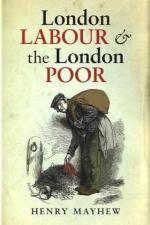
|
| Name: _________________________ | Period: ___________________ |
This test consists of 15 multiple choice questions and 5 short answer questions.
Multiple Choice Questions
1. What did the mutual aid societies do?
(a) Protect their turf.
(b) Testify for them if they are being cheated.
(c) Protect their equipment.
(d) Collect a small amount from each member to take care of them or their families if need be.
2. Where did the street people of London in the 1800s conduct their trade?
(a) In booths in the market.
(b) In their stores.
(c) Only in the city park.
(d) On the streets and sidewalks.
3. What type of toiletry items were provided by some of the better lodging houses?
(a) Towels and soap.
(b) Baht powder and shaving cream.
(c) Laundry soap and wash boards.
(d) Soap and razors.
4. To what was street vending an alternative?
(a) Going to jail.
(b) Being hung.
(c) Being sent to the military.
(d) Going to the workhouse.
5. What happened that people started bathing more often?
(a) The rise of public baths.
(b) A law forcing everyone to bath at least once a month.
(c) A law forcing everyone to bath at least once a week.
(d) Charity organizations opening more and offering free baths.
6. To whom did some merchants loan stock at no cost?
(a) Female costers who sold newspapers.
(b) Male costers who sold food.
(c) Female costers selling nearby.
(d) Male costers with families.
7. Where did a coster sleep if sales were bad?
(a) In the debtor's prison.
(b) In the homeless shelter.
(c) In the doorway of a shop or church.
(d) In the city parks.
8. What did the crossing sweep who Mayhew interviewed work at before finding an open intersection?
(a) Nothing.
(b) Selling matches.
(c) Selling newspapers.
(d) Shining lanterns.
9. Who in Mike's family eventually emigrated to America?
(a) His mother and her second husband.
(b) His older brother.
(c) His sister and her husband.
(d) His aunt.
10. What does Mayhew say the Jewish traders seldom were?
(a) Penurious.
(b) Kind.
(c) Generous.
(d) Drinkers or gamblers.
11. What occasionally happened to one of the bolder boys?
(a) They would be arrested for coal theft and put in jail for a week.
(b) They would get smothered when a load of grain was dumped in the bin.
(c) They would get smashed when a load of coal was dumped in the barge.
(d) They would be arrested for grain theft and put in jail for a week.
12. How were dustmen hired?
(a) By the city council.
(b) They just worked and then asked for a wage.
(c) By individual store owners.
(d) By the mayor.
13. Who collected coal, small scraps of wood, lost coins and other junk from the deep, sucking, stinking mud?
(a) Mudlarks.
(b) Mudmen.
(c) Mudworms.
(d) No one; it was not worth collecting.
14. Who usually watched Jewish girls who peddled fruit?
(a) Their mothers.
(b) Their brothers.
(c) No one.
(d) Their boyfriends.
15. Into what kind of fund did residents of better lodging houses pay?
(a) Medical care funds.
(b) General maintenance funds.
(c) Entertainment funds.
(d) Newspaper funds.
Short Answer Questions
1. Who did not usually bother to wash up even before eating or sleeping?
2. How did servants sometimes augment their pay without owner's permission?
3. What did dustmen do?
4. Who looked down upon chimney sweepers?
5. What did Ragmen do?
|
This section contains 561 words (approx. 2 pages at 300 words per page) |

|




